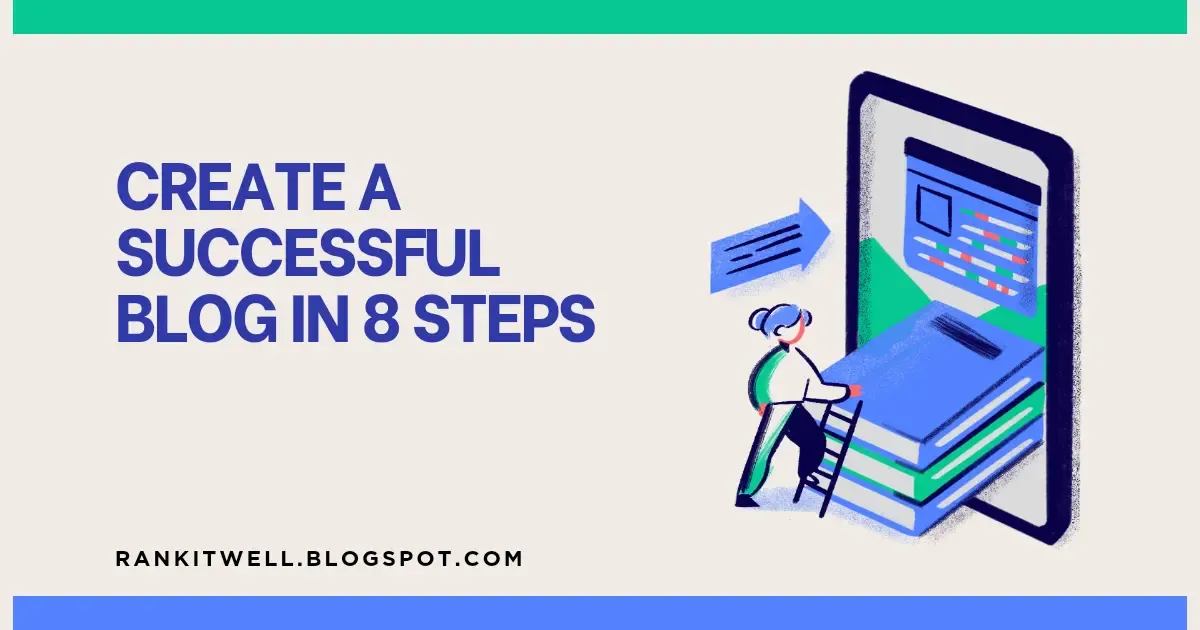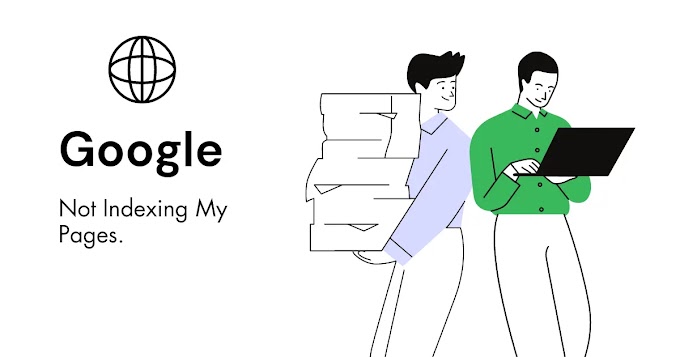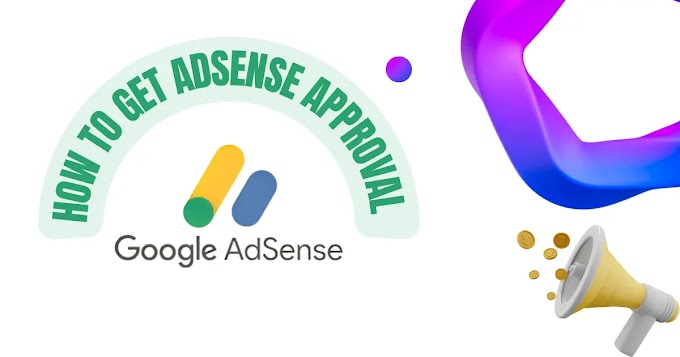How To Start A Blog?
You may want a blog to make money or simply to tell something about yourself or something you are passionate about.
It doesn't matter what the reason is. A blog can allow you to earn money by working remotely, but it can also simply be a passion.
So, if you have an idea for a blog or website but don't know where to start, this is the right place.
In this complete guide, you will find my experience, which will accompany you step by step in creating an effective blog, even if you have no technical skills.
Let me tell you something: we've all been there, even the richest and most famous bloggers.
I know well. Along with the excitement of creating a blog, you are stuck with a series of questions…
How to start a blog? What tools do I need? How to write a blog post?
At first glance, they seem like mountains that are impossible to climb.
Starting a blog may seem like a titanic undertaking reserved for gurus and experts in the sector.
Those who decide to do so are often blocked by the apparent lack of technical skills.
Some time ago, I too found myself in this "annoying" situation, to say the least, but that's exactly where I started. I am like many others.
I was faced with dozens of confusing information, complicated terms, and the result - when it arrived - was not what I wanted: a blog that didn't work and didn't produce the desired results.
The good news is that here at Rank It Well, we have decided to create this free guide on how to create a professional blog, from scratch.
The course is aimed at all those who take their first steps in the world of blogging.
By continuing to read, you will be guided step by step to complete all the necessary steps, from choosing the domain, to installing and configuring WordPress, up to managing content and comments.
Ready?
All we have to do is get started!
What is Blogging, And Who Are Bloggers?
A blog is like a shared journey, where you are the pilot who has to perform the most spectacular stunts.
The "pilots" of this journey are called "bloggers."
We tend to think that these “bloggers” are people with great knowledge on a topic and high impact on public opinion. We usually imagine them young and with great technological skills.
The truth is that if some of the bloggers fit this description, there is no precise stereotype. Blogs are written by people of different ages, different levels of education, different professions, aspirations, and goals.
And you could be next!
Personal Blog
The personal blog was born out of passion, out of the desire to share something with the web, and was not born with the intent to monetize.
Many famous bloggers, such as Arianna Huffington, declare that their blog was born out of passion and that they would never have thought that it could become a job.
For many people, a blog is a place to share themselves and their passions. Some find it therapeutic, while others have made it a pastime, even during the COVID-19 period. If you really have something to say, and you communicate it in the right way, people listen to you.
Company Blog (Business Website)
If you want to create a company blog, you will have to organize and create a very different strategy.
The objective will be completely different, since in the company blog, our final goal is to guide the user towards purchasing our products and services.
The communication of a company blog must be focused on creating posts that not only increase organic traffic but also have the ultimate goal of conversion, with targeted CTAs.
It will be necessary to identify the niche and establish an appropriate communication style, possibly formal, while providing all the necessary information to users.
Why Create a Blog? The 5 Strongest Motivations
Although most bloggers say they do it as a hobby, the truth is that running a blog means spending 3 to 5 hours a day writing articles, responding to comments, and spreading content.
Why all this?
The main reasons that push a person to create a blog are:
1. Passion
2. Sharing
3. Business
4. Express yourself
5. Propose new ideas
In short, there are dozens of reasons why a person or a company decides to develop and manage a blog. It's important to clarify your own reasons:
• Become a better person: Blogging helps you think clearly, communicate with other users, and develop creative flair. Writing is a moment of internal formation.
• Improve your writing: Becoming an "expert writer" requires constant practice, and creating a blog will help you write regularly.
• Be heard: Gone are the days when only politicians and rich men could express their opinions. Today, with a blog and a good content strategy, you can reach millions of people.
• Building a loyal audience: One of the most important goals is to create an audience that is interested in you and your content.
• Making money: It takes time, commitment, and determination, but contrary to what many say, it is possible to make money with a blog.
Another reason that encourages people to become bloggers is the economic factor.
You can make money through advertising space on your blog or by selling products through it.
There are cases of blogs that have been so successful that they have been contacted by many companies to advertise, thus transforming a simple website into a large, successful business.
What is certain is that to get results, you need to start by creating a truly effective blog.
Create a successful blog in 8 steps
1. Define your niche.
Do you already know what your niche is? If so, shake off any doubts and move on to the next paragraph. But if you still don't have clear ideas, keep reading.
To create your professional blog, you need to start with an idea. For every personal or work project, if you are clear about where you want to go, the path becomes easier. All the options we saw just now can be combined with each other, but it is essential to have a clear path ahead of you, aim for the goal, and deploy all the resources necessary to achieve it.
Sometimes, what is missing is precisely the basic idea, the comet that will guide you on your oceanic journey in the sea of the web. Among the numerous comments and questions I read on various blogs, among the most frequent are those from people who have great enthusiasm to start creating a blog but don't know which topic to choose.
These people often suffer from a lack of inspiration that doesn't allow them to come up with good ideas. They have an infinite desire to do but just as much confusion in their heads.
Advice: Consider avoiding the health niche, as Google may not rank your website if you lack a medical background.
I personally have written down three rules that I always re-read when I look for inspiration for a new project:
RULE 1: Write about something I really enjoy doing.
There's no point in creating a blog on a topic that doesn't excite you. Just as an example, if you love watching football and have extensive knowledge about the sport, you've found your niche!
It takes hours to write a complete article, and most of the time, we'll abandon it if the niche isn't interesting (My own experience).
Here are some useful questions to ask yourself to think about and find the topics that satisfy you the most:
• What do I do professionally, and what have I studied?
• What are my current and past hobbies?
• What do I like to read on the web?
RULE 2: Write something that is useful to others.
Who reads a blog that does not give anything related to their problem? People need a solution, and Google want those sites which provide solutions.
So in the case of blogging, Solution=success. It's a simple but universal rule. If you are useful to others and solve their problems, they will be interested in what you do. So, if you don't know what type of content to start with, my advice is to approach it with this perspective.
Remember: first, you have to be useful to others; then others will do something for you. By following this rule, over time, the opportunities to generate revenue will come by themselves.
RULE 3: Write about something I am an expert in (or can become an expert in).
To be useful to other people, you need to know what you're talking about. Of course, being an expert doesn't mean having three bachelor's degrees and a master's degree in the subject, but mastering the subject and continuing to study it are key elements.
Choosing the right market niche is already 50% of success.
Before creating a blog and becoming a successful blogger, you need to go through a process of research and analysis to gain greater awareness within the niche or topic you choose.
You have to mix your skills and qualities with what the niche wants.
The role of choosing the niche will influence all your future work, so my advice is to dedicate the right amount of time to this phase.
2. Choose Your Blog Name
One of the main differences between a free blog and a professional blog is the possibility of freely choosing the name of the blog (domain name). Free platforms use long names that are too descriptive and also contain the name of the service you are using (such as blogspot.com, WordPress.com), with a series of negative consequences on both the technical SEO side and the user side.
To choose a good name for a professional blog, you mainly have three options:
• Use your name.
• Choose a brand.
• Use the niche name (or something similar).
Using your own name is a safe choice for those who want to create a personal blog, and this will also allow you to give greater value to your profile on the web.
However, if your name is too common or difficult to write and remember, it is better to opt for one of the other two options. Creating a brand inspired by your own idea can be stimulating, but it is the most difficult choice. It will take a little more time for your readers to associate this name with the type of content you offer on your blog.
Tip : For better and faster results, consider using Exact Match Domain (EMD) names. For example, if your niche is related to football, you can select domain names like FootballEra.com or FootballNow.com, which directly match your content.
3. Create the logo and brand identity
The logo is the image of your blog, which completes the "look" together with the theme. If, like me, you have no drawing skills, it doesn't mean you have to let the “logo” be inserted by default by the theme.
At the beginning, not being a designer, I didn't face the problem. Then I understood how important it was, and moving forward in the world of blogging, I tried to learn something even at a basic level to create effective logos capable of identifying my projects.
If you don't want to waste time, you can opt to purchase a logo from Fiverr or Upwork. Having a brand identity, with the right color palette and the right graphics, allows you to stand out and strengthen your communication.
In fact, choosing the right colors for your brand is not just an aesthetic question but also a matter of influencing the emotions of your users through color psychology.
4. Choose the platform
Best Self-Hosting Platforms
A platform with a self-hosted service means that you will have private hosting service. In practice, it means that the web space where you will upload your blog will be entirely managed by you.
Having ownership of the domain and hosting allows you total management without limitations. But, on the other hand, you will have to be able to manage every aspect of it: updates, backups, and other technicalities.
Therefore: more freedom but more responsibility.
But let's see what the best self-hosting platforms might be:
WordPress is one of the most used CMS in the world that allows you extensive customization through changes to the code or by installing extensions, called plugins. It is not necessary to know the programming codes to use WordPress, since all you need to do is install the plugins to have the functions you need.
But if I haven't convinced you, here are other self-hosting platforms that I recommend:
• Drupal: content management system, the very widespread PHP language, particularly suitable for those who love creating their website from scratch and adapting it to their needs and creativity.
• Ghost: open source and free, very similar to WordPress.
• Joomla: particularly simple and intuitive to use.
Free hosting platforms
Free Hosted platforms, on the other hand, certainly have much simpler technical management, precisely because you are not the owner of the hosting space, but you will only have to think about publishing.
However, not being the owner of your platform entails limitations: space, customization, but also SEO.
The fact remains that if you are a beginner looking to become familiar with the world of blogging, you could still opt for this path. Here are the platforms I recommend:
• WordPress.com
• Blogger
• Medium
• Wix
• Weebly
• Squarespace
• Tumblr
5. Create your blog structure by focusing on simplicity and clarity
When I talk about the basic structure of the blog, I am referring to menus, categories, and all those useful widgets for customizing your blog.
The first thing you need to do is create the "about us" page and the "contact us" page, where you enter the information that users can use to get to know you and contact you.
Then you will have to create categories (two or more, depending on the type of project you are carrying out) and insert other pages that can be useful to your readers. For example, a page that contains all the most important resources you are offering.
Having an effective blog architecture means dividing it into macro topics, i.e., categories, which vertically subdivide the central topic of your blog.
6. Create valuable content and post regularly
Knowing how to write for the web is a skill that every blogger should develop.
How?
Practice, practice, practice.
Only by writing dozens and dozens of articles will you be able to refine your art and become a good copywriter, capable of writing killer headlines and content that keeps your readers glued to their PC or smartphone.
But why is copywriting so important?
Knowing how to write well is not enough to be a copywriter, but it is necessary to learn and apply persuasive writing rules.
Being able to attract more and more readers, keep them on your page for as long as possible, and push them to take actions (the famous CTA, which can be a purchase, a comment, or a subscription to the newsletter) will allow you to grow more and more.
All this is communication.
7. Insert quality images and videos
We've talked about the importance of text, but don't forget about images and videos.
Images don't just make your content 'prettier'; they can help you reinforce what you've written (graphics or screenshots of your results) and will also help you break up the content by avoiding the wall of text.
However, remember to choose images and videos that are copyright-free and of high quality. This means that, in addition to being beautiful media that further keeps the reader glued to the screen, they must also please Google, which rewards content with quality videos and images with better ranking.
Avoid low-resolution photos and videos that are difficult to load; always think that the user experience must be at the top.
Copyright-free images and video sources
• Unsplash
• Pixabay
• Pexels
• Flickr Creative Commons
• Videvo
8. Bring traffic to the blog you created
Well, all you have to do is start your extraordinary adventure!
Your plane is ready, and the next step is the flight.
What does flying mean?
First of all, learn the art of taking off. (I don't think a plane parked on the runway can have a lot of use.)
So it's time to drive traffic to your blog.
In the final part of this guide, I want to point out some useful resources to better manage your blog.
Where do we start?
The first thing that comes to mind when talking about traffic is SEO, which deserves further investigation.
Study SEO And Optimize Your Contents.
The goal of SEO is to get your blog pages into the top results of the SERP (search engine results page) for the most effective keywords for your business or blog.
Be careful: I didn't say "keywords" in general but "effective keywords for your business."
This is to point out that not all keywords will be useful for your blog.
For example, if your blog is about travel to India, it makes no sense to use keywords like "trip to America." In this case, a user would arrive on your site but, not finding what they were looking for, they would leave in less than a second. So, use relevant keywords only.
I hope the example conveys the concept well.
Doing SEO is much more than simple keyword research.
It means making your site or blog easily understandable to search engines. It means taking into consideration the intentions(search intent), desires, and expectations of readers, and much more.
We are all aware that there is no exact science, but it is a world made of experiments, attempts, and approximations.
However, this does not mean that there are no rules or techniques with a high probability of success.
Utilise Social Media
In addition to creating paid advertising campaigns (which we will talk about in more detail shortly), I advise you to open a profile on the most used social networks and publish interesting content related to your blog and the interests of your niche.
Also, work on your personal brand. This way, you can introduce yourself to new people and create a community to interact with that will look forward to reading your content
Test Paid Advertising
Let's clarify this straight away.
SEO allows you to rank yourself in the SERP and increase traffic to your website organically for free, but it takes patience. The results are not instantaneous; it takes months or years to rank yourself. However, once ranked, it will be difficult to lose the result reached.
By creating paid advertisements, you will immediately get the first page of the SERP. But, once you stop paying, you will immediately lose that position.
You can understand that a good strategy involves using both techniques. Maybe at the beginning, precisely because it will take you a while to rank yourself organically, you could invest a little more in paid advertisements such as Facebook ads, Google ads, and Native Advertising.
Conclusion
Well, I think I've given you a lot of information to work with! Throughout this article on 'how to create a successful blog,' we explained every basic you need to know. If you want to know more about blogging, you can check our 'Blogging Tips' category. If you have friends who are just starting the blogging journey, please share this article; it will help them a lot.






.webp)





